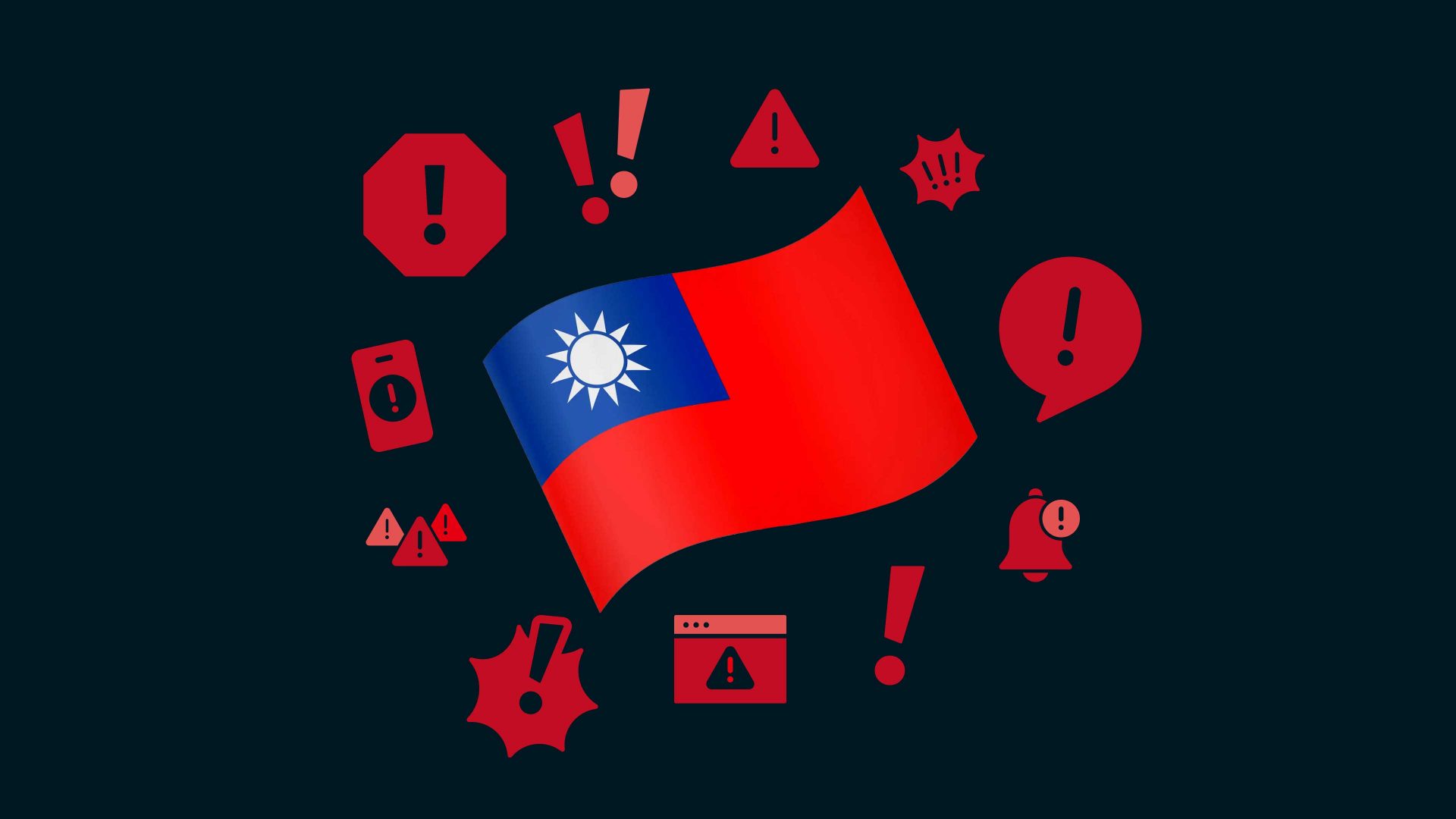It makes for an odd sight in parks throughout the city – red banners listing anti-fraud hotlines and warning about online scams. But this is increasingly the reality for Taiwan, where the elderly are falling prey to online scams and telephone fraud. It makes sense to have these banners strewn across the parks where they come for a bit of air and to socialise with their neighbours.
In one week in late September Taiwanese people lost TD1.7bn ($56m) to fraud. The majority of this was due to investment fraud, with large sums of money sunk into scam investment opportunities. Large amounts were also lost through online shopping scams.
The amount of money conned out of Taiwanese people on a daily basis can boggle the mind. To see a tiny snapshot of this, you only need to check your Line account – that’s the messenger app we use here in Taiwan in lieu of WhatsApp. Every day, Line fills up with endless spam, whether that be messages offering investment opportunities, catfishing, or other methods of tricking you out of your money.
This wave of digital fraud is a big problem and it has been around for a while. Taiwanese politics is fractious, but one thing both major political camps agree on is that the problem needs urgent attention. Even so, measures to date have failed to make any headway.
Taiwan’s fraud issues dovetail with several other social problems. For one, Taiwan officially became a “Super-Aged” society, meaning that, as of this year, 20% of the population is now older than 65. That demographic is particularly susceptible to fraud, especially when it’s directed at them via new online technologies. It has got to the point where people are even unable to tell whether phone calls from friends or relatives are genuine or not.
It doesn’t help that Taiwan is already facing threats from China, which include disinformation campaigns intended to sow division in Taiwanese society and curb the potential for resistance. The disinformation threat aligns with the danger from fraud – the two attempts at deception sit side by side.
These issues are likely to be exacerbated by the rise of AI, which may make it easier to produce disinformation or fraudulent information at scale, and to create fake audio or video to trick the gullible. Fraudsters are becoming increasingly sophisticated, producing copies of real websites for online shopping and other digital services to scam people out of their information.
But the dangers of fraud are not only a threat to the victims in Taiwan. Scams and fraud targeting Taiwanese are sometimes carried out by Taiwanese people held against their will in scam centres in south-east Asia. It is thought that thousands of trafficked Taiwanese may be currently detained in this way in places such as the infamous “KK Park” on the Thailand-Myanmar border. Those being held there have their passports taken away from them, and face violence if they try to escape.
Here, there is another parallel between fraud and disinformation. Chinese disinformation targeting Taiwan during critical periods, such as elections, has often failed to make any real impact because it is so obviously from China. The terminology, vocabulary and the accent are all telltale signs.
Suggested Reading

How Taiwan has learned to live with threat
But, in more recent times, China has improved the quality of its disinformation efforts, employing Taiwanese people to “localise” and give voice to Chinese disinformation, giving the impression that it is less foreign.
This is the role that Taiwanese people who are held in scam centres play, in “localising” fraud. As fraud becomes an increasingly globalised problem, it proves an increasingly hard issue for Taiwan to tackle on its own, particularly with fraud operations located in the grey zones and borderlands of conflict zones across south-east Asia.
Brian Hioe is a writer and DJ from Taipei



